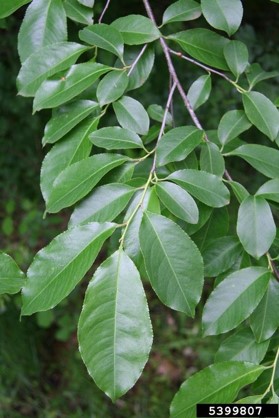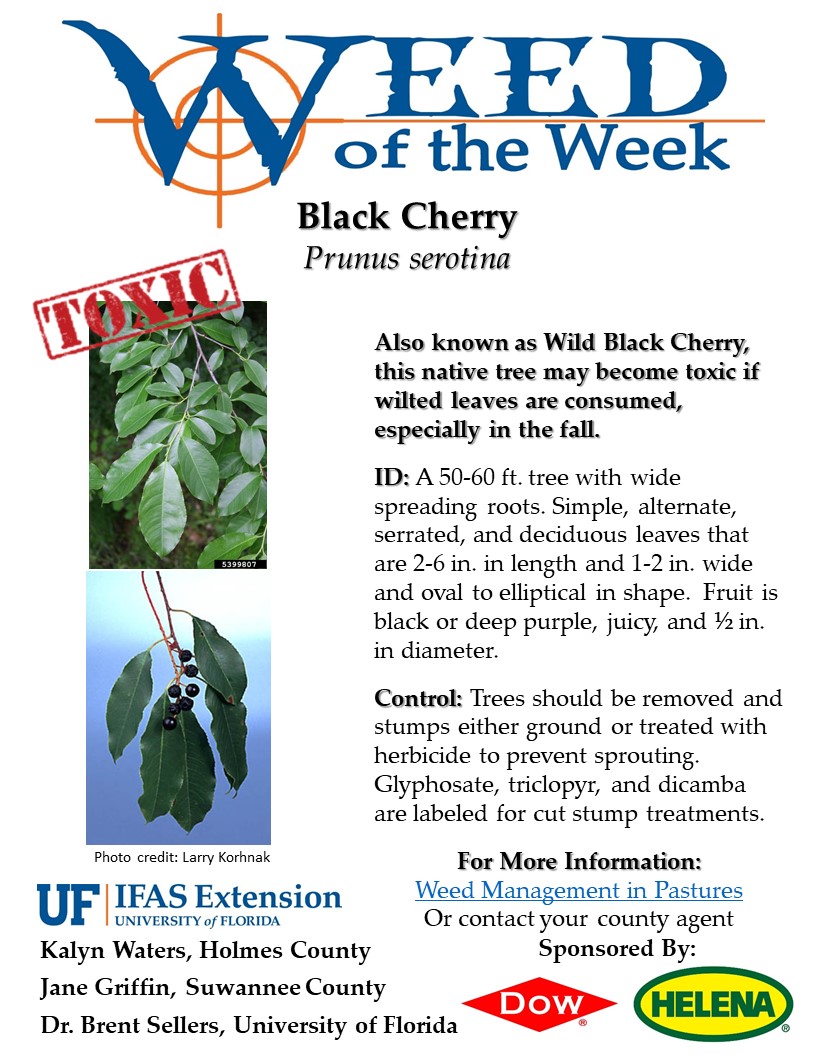Black Cherry is common across the southern half of the United States. Mature trees span from 50 to 90 feet tall with an oval silhouette shape, and low branches that normally droop to the ground. This native tree is commonly used for landscaping but can also be found in pastures and along fence lines.
The leaves of Black Cherry trees are toxic to livestock following wind damage, frost, or drought that causes the leaves to wilt. Once wilted, the leaves contain prussic acid, a hydrogen cyanide toxin that only forms when enzymes of the wilted leaves are combined. Research has shown that consumption of 1.2 to 4.8 pounds of wilted leaves can be lethal to a 1,200 dairy cow (Dairy Herd, Lewandowski 2017).
For help identifying weeds or developing a control plan for your operation, please contact your county extension agent.
For more information on this topic please see the following UF/IFAS Publication: Weed Management in Pastures
- Public Meeting on Agricultural Inspection and Livestock Transportation Laws in the Florida Panhandle – February 9 - January 23, 2026
- Big Doe Contest Returns for 2025: A Growing Thanksgiving Tradition - November 14, 2025
- UF/IFAS Extension Panhandle Cattlemen’s College Announces Scholarship Opportunity for Florida Youth – Application Deadline September 15 - August 29, 2025


